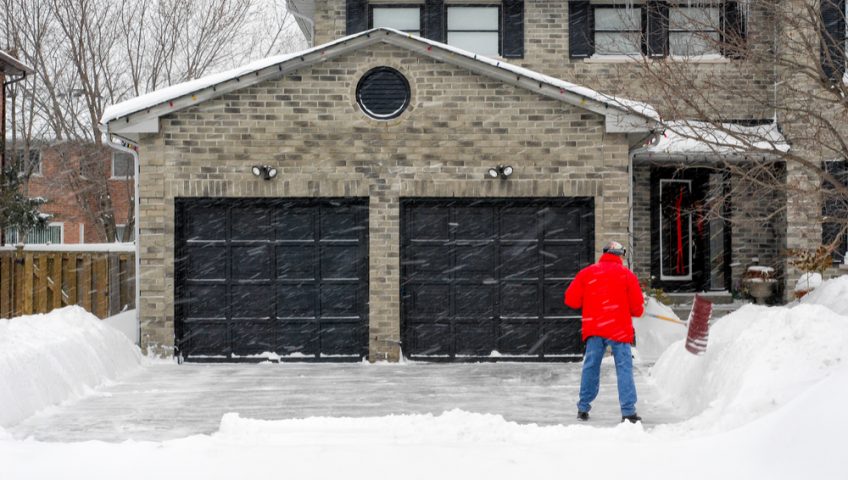Are you worried about the condition of your walkway or driveway as the snow piles up? Whether you’ve just moved into a new home with interlock or had fresh paving installed in recent months, it’s important to understand the effects winter weather has on your paving to minimize any dents, cracks, and uneven surfaces from emerging in the spring. Learn more below about what to anticipate and how to best protect your paving during the winter season.
The Freeze & Thaw Cycle
Proper installation of interlock paving is always a crucial preventative measure against damage, especially when it lives through our harsh climate. During the wintertime, as the temperatures rise and dip below freezing, we naturally undergo a freeze and thaw cycle which can cause materials to expand and contract, including your patio stones. This can impact the stability, aesthetics, and integrity of them. Cracking or having an uneven surface can also occur when the wrong materials are used for colder climates.
Damage from Deicers During Icy Weather
Although interlock stones are fairly durable, one of the most damaging elements that many homeowners aren’t aware of is deicing products. Once the ground becomes slick and icy, we’re eager to get rid of it to eliminate any hazardous areas. But the harsh chemicals contained in deicing products can end up mixing with ice in the pavers, which can degrade and deteriorate them. So when necessary, only use deicing products sparingly as needed and try to avoid using it frequently or in large quantities.
Scrapes and Marks from Shovelling
When it’s time to clear the driveway, be mindful of what you’re using. Anything that’s heavy, like a metal shovel or a snow plough, can end up scraping and marking up the stones beneath the snow. That’s why we recommend only to use plastic shovels over interlock, and if you do use a plough, make sure the blade is set on a higher level to avoid it dragging along the ground.
Stains & Discolouration
Like most Canadians, you probably use salt to sprinkle along your walkways to prevent any slip and falls. But similar to the deicing products, we also highly recommend using salt sparingly and only when needed. Throwing down big handfuls all along your interlock can not only degrade it, but it can also leave behind permanent stains and discolouration. So only use what you need and always avoid dowsing the ground with large amounts to prevent damage.
The effects winter weather has on your paving and interlock can be harsh to face once they emerge after the snow finally melts. When you need them restored or replaced, allow our dedicated team of professionals at Grow Green to help. Whether it’s your pool patio, walkway, or driveway, we’re about doing things right the first time. Contact us to learn more!
